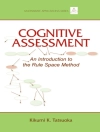Social interaction lies at the heart of our everyday experience. We
make our way down the street and avoid crashing into others, take
our place in the supermarket queue, take care in the way we talk
about others in conversation, acknowledge the social status of
people we meet, and enjoy leisurely pursuits in the company of
friends and like-minded others. All these things are fundamental
parts of human sociality that can be discovered and understood
through ‘sociologies of interaction’.
This book provides an invaluable introduction to the theoretical
foundations and practical applications of interactionist approaches
to everyday life. Beginning with an overview of three core
traditions – symbolic interactionism, ethnomethodology and
conversation analysis, along with Goffman’s work on the
interaction order – the text moves on to examine in detail topics
such as leisure, work, health and illness, deviance, class, status
and power, education, ethnic relations and gender. Highlighting a
range of empirical studies, the book shows how sociologies of
interaction have the capacity to reframe and make us rethink
conventional social science topics.
This illuminating book will be of interest to undergraduates across
the social sciences, particularly in sociology, social psychology
and communication studies, as well as those who have an interest in
understanding the interactional underpinnings of everyday life.
สารบัญ
Introduction page 1
1 Pragmatism and Symbolic Interactionism 8
2 Phenomenology and Ethnomethodology 35
3 Conversation Analysis and the Interaction Order 63
4 Status and Power 98
5 The Body, Health and Illness 121
6 Work 142
7 Deviance 162
8 Leisure 188
Conclusion 208
Notes 219
References 221
Index 237
เกี่ยวกับผู้แต่ง
Alex Dennis is lecturer in sociology at Sheffield University.
Rob Philburn is lecturer in sociology at the University of Salford.
Greg Smith is lecturer in sociology at the University of Salford.












